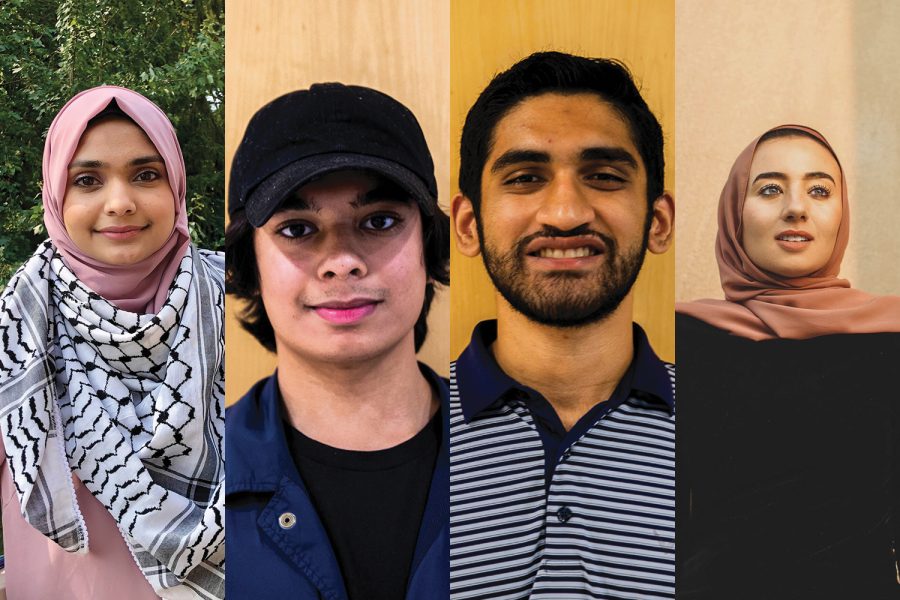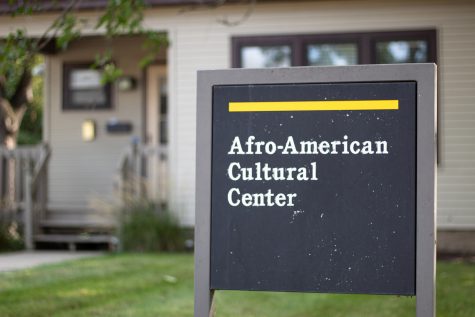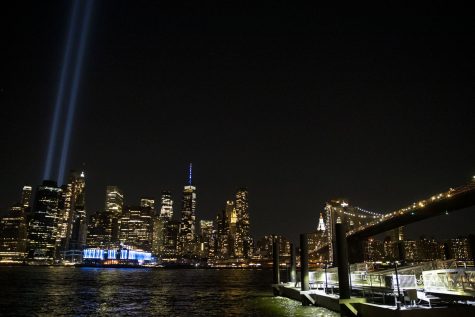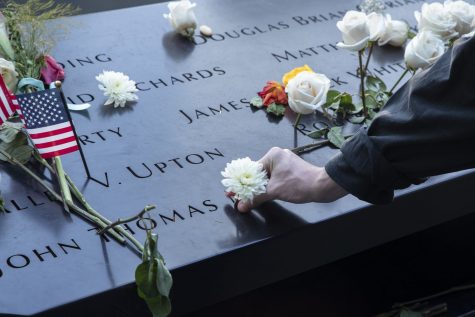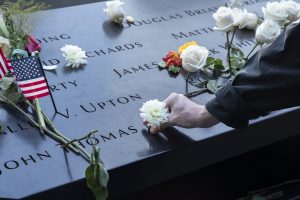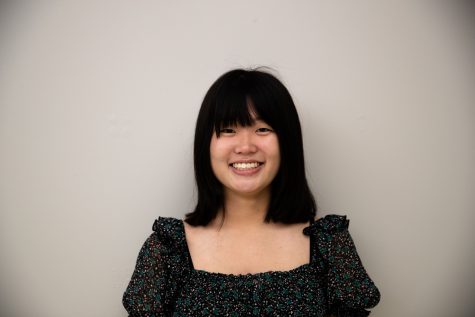How post-9/11 Islamophobia impacted UI students
Muslim students share the impact that Islamophobia had on them growing up in a post-9/11 world.
From left: Hibah Lateef (contributed), Mushroor Kamal, Aliyan Warraich, Hanaa Masalmeh (contributed).
September 12, 2021
Although people assume Hanaa Masalmeh’s parents forced her to wear a hijab, she actually made the decision to wear it herself in 7th grade. Masalmeh wanted to stop hiding her identity and for people to know she was a proud Muslim, despite it potentially making her a target for Islamphobia.
After 9/11, anti-Muslim sentiment rose in response to the terrorist attacks. In 2001, 93 assaults against Muslims in the U.S were reported to the FBI. Before 9/11, there were only 12 reported incidents in 2000. Numbers surpassed the 2001 peak in 2016 when it increased to 127 reports during the year.
In addition to the rise of hate crimes, Muslims experienced an increase in discrimination. A Pew Research Center survey conducted in 2017 found that 75 percent of Muslim Americans felt they faced significant discrimination in the U.S.
Half of the respondents believed that being a Muslim in the U.S. has became more difficult in recent years.
Masalmeh, a University of Iowa law student, said people need to use their freedom of speech to stand up against this discrimination and anti-Muslim sentiment.
“Rights are like muscles: you either use them or lose them,” Masalmeh said. “I haven’t seen people speak out when Islamophobia happens, and we need to start questioning the stereotypical narratives when we see or hear them.”
Aliyan Warraich, a UI junior studying human physiology on a pre-med track, faced microaggressions after immigrating from Pakistan to the U.S.
Growing up, some of Warraich’s classmates would try to associate him with terrorists, or ask him questions such as, “Where are you from?”
Although sometimes it was meant as a joke, Warraich said he didn’t respond to the comments because he wanted to avoid conflict.
However, he still believed that the remarks were an issue because of the stereotypes they created.
“Because I’m brown and because all the terrorists were also brown, they would try to make associations and ask me where I came from,” Warraich said. “It’s inherently not a negative comment, but it assumes that you’re foreign.”
UI sophomore Mushroor Kamal experienced a similar situation to Warraich while growing up in Dubuque, Iowa.
“It would usually be jokes from friends that were based on the basic stereotype of all Muslims being terrorists,” Kamal said.
Warraich said the media is partially responsible for Islamaphobia because he believes it only exposes people to the most extreme and worst situations. He believes that people need to meet Muslims instead of creating assumptions and generalizations through social-media outlets.
“I think if more people met Muslims rather than through the TV or Twitter or Facebook, I think people would automatically change their perceptions because they would realize some of the stereotypes they have aren’t true,” Warraich said.
Hibah Lateef, a second-year UI law student, said Islamophobia comes from individuals and at the institutional and governmental levels.
Lateef grew up in Dallas, Texas, and attended the same Islamic school until she graduated high school. She said protesters would often stand outside her school with guns and yell anti-Muslim chants.
Lateef believes Islamophobia is more than just bigotry and racism. She said it is deeply rooted at a systemic level.
After 9/11, the FBI surveilled mosques and neighborhoods with a dominant Muslim presence. Additionally, Lateef said the ensuing wars in the Middle East made Muslims scared to stand up for human rights because the rhetoric fueled the terrorist stereotype.
“I think that’s actually the negative impact of the War on Terror,” Lateef said. “Going on the street and someone swearing a slur at you for wearing a Hijab, it sucks, but imagine not being able to advocate for human rights overseas as a result of this rhetoric.”
With the consequences Muslims face because of the rise of Islamophobia, Masalmeh said the U.S needs to have difficult conversations and question the narratives the media presents.
Masalmeh believes that one way to combat anti-Muslim sentiment is to fight against stereotypical representation in the media.
“We need to take control of our image in the media,” Masalmeh said. “How they misrepresent us fuels Islamophobia, and we can’t let anyone else tell our story.”



